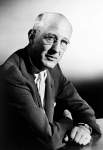At Gettysburg 50 years after the battle, it was no longer blue and gray. In 1913, a kind of union prevailed.
The Great Lakes hurricane of 1913 was a destructive freak. As far as lakers were concerned, it was …
At the Gettysburg reunion fifty years after the battle, it was no longer blue and gray. Now it was all gray.
America has taught the world that freedom is humanity’s birthright. Why should we expect President Carter to keep quiet about it?
Remembering Samuel Eliot Morrison
An excerpt from a new bicentennial history of his native state
A FAMOUS HISTORIAN RECALLS THE COUNTRY WHERE HE GREW UP
THIRD OF FOUR INSTALLMENTS A FAMOUS HISTORIAN RECALLS THE COUNTRY WHERE HE GREW UP
SECOND OF FOUR INSTALLMENTS
A FAMOUS HISTORIAN RECALLS THE COUNTRY WHERE HE GREW UP
A FAMOUS HISTORIAN RECALLS THE COUNTRY WHERE HE GREW UP
The longtime adviser to American Heritage wrote history not simply as a means of talking with other historians, but in order to talk to the general reader.
AN AMERICAN HERITAGE ORIGINAL DOCUMENT
Edited and with an introduction
The Union stood in danger of losing an entire army at Chattanooga. Then U. S. Grant arrived, and directed the most dramatic battle of the Civil War






